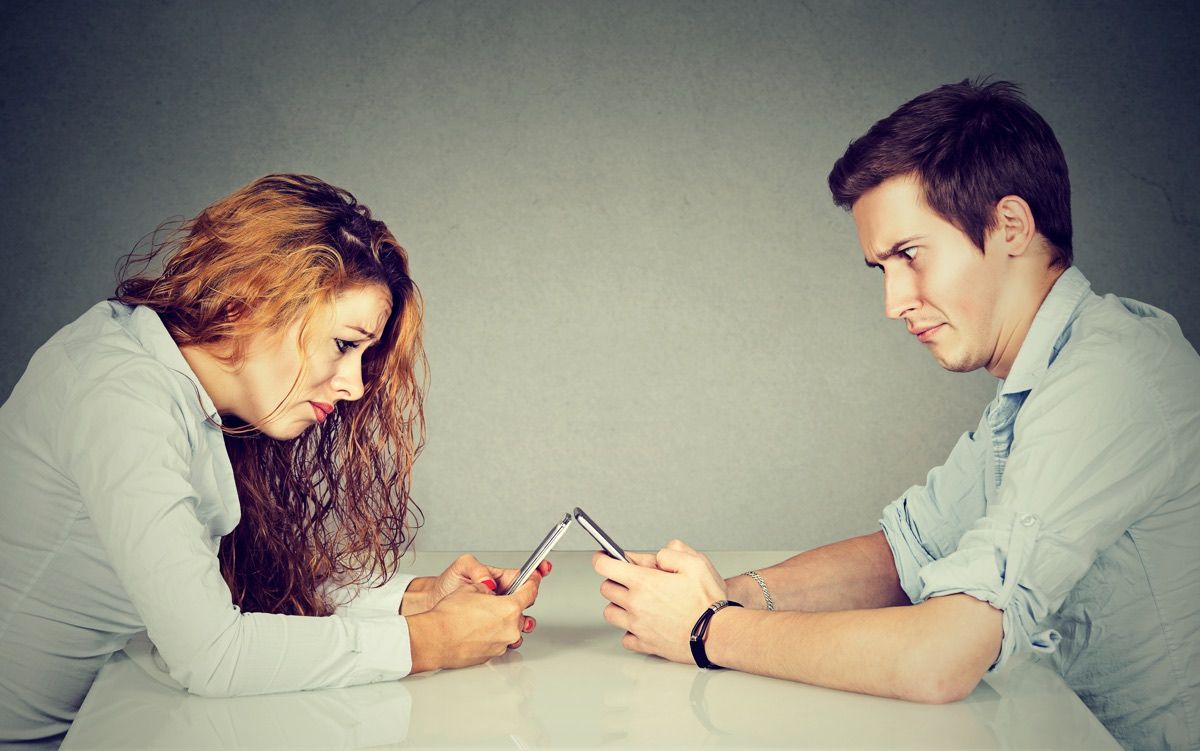Is the Smartphone Ruining Your Relationship?

This article was originally published at The Conversation. The publication contributed the article to Live Science's Expert Voices: Op-Ed & Insights.
The U.S. divorce rate hovers at 40 percent, but that's not the whole story. Many intact relationships are on life support. According to a survey by the National Opinion Research Center, 60 percent of people in a relationship say they're not very satisfied. There are some familiar culprits: money problems, bad sex and having kids.
But there's a new relationship buster: the smartphone.
My colleague Meredith David and I recently conducted a study that explored just how detrimental smartphones can be to relationships.
We zeroed in on measuring something we've dubbed "phubbing" (a fusion of "phone" and "snubbing"). It's how often your romantic partner is distracted by his or her smartphone in your presence. With more and more people using the attention-siphoning devices – the typical American checks his or her smartphone once every six-and-a-half minutes, or roughly 150 times each day – phubbing has emerged as a real source of conflict. For example, in one study, 70 percent of participants said that phubbing hurt their ability to interact with their romantic partners.
Most know what it's like to be phubbed: You're in the middle of a passionate screed only to realize that your partner's attention is elsewhere. But you've probably also been a perpetrator, finding yourself drifting away from a conversation as you scroll through your Facebook feed.
In our study, we wanted to know the implications of this interference.
Sign up for the Live Science daily newsletter now
Get the world’s most fascinating discoveries delivered straight to your inbox.
We surveyed 175 adults in romantic relationships from across the United States and had them fill out our questionnaire. We had them complete a nine-item Partner Phubbing Scale that measured how often some felt "phubbed" by his or her partner's smartphone use.
Sample questions included "My partner places his or her smartphone where they can see it when we are together" and "my partner uses his or her smartphone when we are out together."
Survey participants also completed a scale that measured how much smartphone use was a source of conflict in their relationships. Participants also completed a scale that measured how satisfied they were with their current relationship, how satisfied they were with their lives and if they were depressed.
We found that smartphones are real relationship downers – up there with money, sex and kids.
People who reported being at the receiving end of phubbing also reported higher levels of conflict over smartphone use than those who reported less phubbing. Not surprisingly, higher levels of smartphone-related conflict reduced levels of relationship satisfaction.
Something as seemingly innocent as using a smartphone in the presence of a romantic partner undermined the quality of the relationship. This can create a domino effect: As our study also showed, when we're not happily in love, we are also less likely to be satisfied, overall, with life. We're also more likely to report that we are depressed.
Why, might you ask, does partner phubbing wreak such havoc between romantic partners?
At least two possible explanations for such relationship tumult exist. The "Displacement Hypothesis" suggests that time spent on smartphones displaces (or reduces) more meaningful interactions with your lover, weakening the relationship. I call a second theory "Smartphone Conflict Theory." Simply put, the device is a source of conflict and leads to fighting. Fights, of course, can only serve to undermine your satisfaction with your partner and the relationship.
So what can we take away from all of this? Even if we act like it's no big deal, it still stings whenever we're phubbed by our romantic partner. In a sense, our romantic partners are choosing their phone over us.
We probably feel a little less important and the relationship feels a little less secure.
James A. Roberts, Professor of Marketing, Baylor University
This article was originally published on The Conversation. Read the original article.



